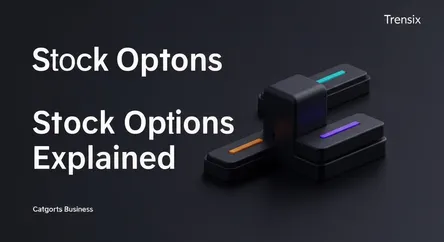Business
Stock Options Explained

Discover what stock options are, how they work in startups, and why they're a key part of employee compensation and wealth building.
What is it?
Stock options are a form of equity compensation that grants an employee the right, but not the obligation, to purchase a set number of company shares at a predetermined price, known as the 'strike price.' This right is earned over time through a process called 'vesting.' Often used by startups, options serve as a long-term incentive, giving employees a stake in the company's future success without an immediate cash outlay from the business. If the company's stock value rises above the strike price, employees can exercise their options to buy shares at a discount and potentially realize a significant profit.
Why is it trending?
In the highly competitive tech and startup world, attracting and retaining top talent is crucial. Startups, often cash-strapped, can't always compete with the high salaries offered by established corporations. Stock options bridge this gap by offering a potentially lucrative piece of the company's future growth. This aligns the financial interests of employees with those of the founders and investors, fostering a strong sense of ownership and motivation throughout the team. The dream of a massive payout from an IPO or acquisition makes options a powerful recruiting tool.
How does it affect people?
For employees, stock options represent a high-risk, high-reward opportunity. They offer a direct path to wealth creation that a simple salary cannot, potentially turning a job into a life-changing financial event. This fosters loyalty and encourages a long-term mindset. However, the risk is real: if the company fails or its stock price never surpasses the strike price, the options can expire worthless. This duality forces employees to evaluate not just a job offer, but the long-term viability and potential of the startup itself, making them de facto investors in their own careers.